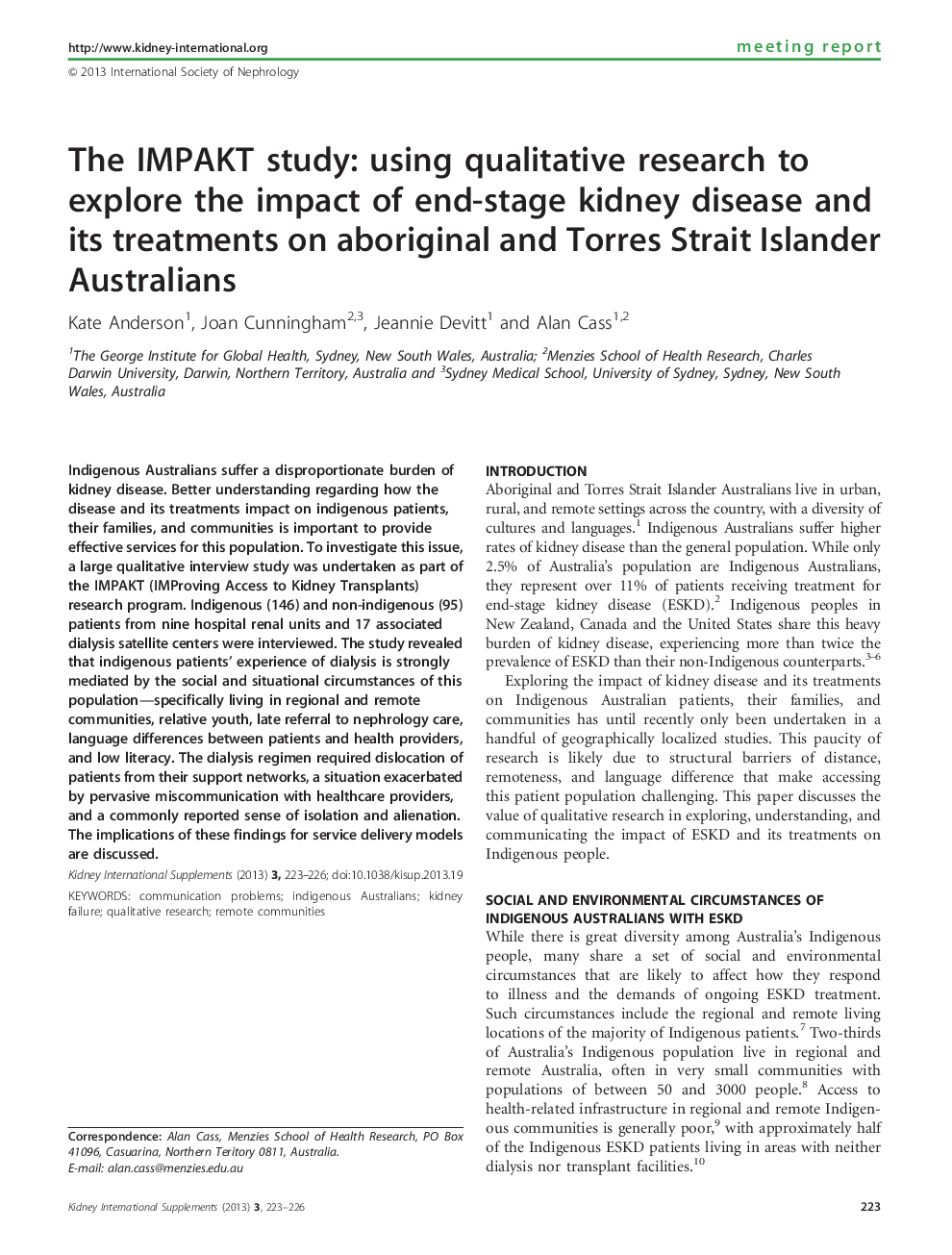| Article ID | Journal | Published Year | Pages | File Type |
|---|---|---|---|---|
| 3890625 | Kidney International Supplements | 2013 | 4 Pages |
Indigenous Australians suffer a disproportionate burden of kidney disease. Better understanding regarding how the disease and its treatments impact on indigenous patients, their families, and communities is important to provide effective services for this population. To investigate this issue, a large qualitative interview study was undertaken as part of the IMPAKT (IMProving Access to Kidney Transplants) research program. Indigenous (146) and non-indigenous (95) patients from nine hospital renal units and 17 associated dialysis satellite centers were interviewed. The study revealed that indigenous patients’ experience of dialysis is strongly mediated by the social and situational circumstances of this population—specifically living in regional and remote communities, relative youth, late referral to nephrology care, language differences between patients and health providers, and low literacy. The dialysis regimen required dislocation of patients from their support networks, a situation exacerbated by pervasive miscommunication with healthcare providers, and a commonly reported sense of isolation and alienation. The implications of these findings for service delivery models are discussed.
